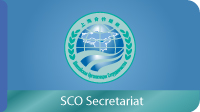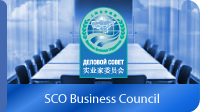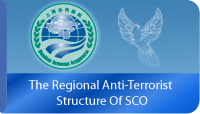|
|
 |
| “Generators of Economic Integration” |
| 11.09.2009 14:17 |
|
|
|
“Generators of Economic Integration”
Maxim Krans, a columnist for InfoSCO
The Russia-Kazakhstan Interregional Cooperation Forum is being held in Orenburg. Such meetings have already become traditional in the two countries relationship. Interest in such forums on the part of business and social structures grows from year to year, which is caused both by the Russian-Kazakhstani partnership high level, and peoples’ desire for cooperation, development of friendly contacts. As the President of Kazakhstan Nursultan Nazarbayev noted, the adjoining territories became a kind of “economic integration generators”. Just thanks to them, the bilateral cooperation extended its boundaries, spread to other regions of our states too.
Having arisen as a natural movement of neighborhoods toward each other, today the economic ties between regions of the two countries, in point of fact, became a driver of integration processes and play year by year an increasing role in them. Their scales take fancy: with joint Russian-Kazakhstani commodity turnover that reached last year almost US$20 billion, about three fourth go to the international trade. Over 3.1 thousand joint ventures, hundreds of joint programs and projects are functioning in the regions.
As the President of Russia Dmitry Medvedev underlined, speaking at the Orenburg forum, “our colleagues in the regions work in constant contact, a considerable part of goods turnover — 70-75 percent — is accounted for the interregional ties. This approaches us, provides the basis for strategic partnership.”
The idea itself of holding such forums was born just in the regions. The Governor of Omskaya oblast was the first to suggest it, who as far back as 1993 proposed to hold a Russian-Kazakhstani meeting on problems of frontier relations. The initiative was supported in the government of Russia, and the first conference of the two states leaders took place in the land of Omsk.
Then chronicle of events had an ever-increasing rate. In the same Siberian city in 2003 another Russian-Kazakhstani summit took place, but already in a new format – it brought together not only heads of state and ministers, but also representatives of neighborhoods. In this way a tradition was founded to hold forums of boundary regions. This meeting in Omsk was initially related to symbolic events, determining the future of relations between the two countries and touching interests of each inhabitant of cross-border regions of Russia and Kazakhstan – and this is almost 35 million people. Then heads of adjoining states agreed on further strengthening of mutually advantageous cooperation in perspective and important fields such as trade and economic ties of territories, situated along both sides of the Russian-Kazakhstani border, mutual relations of boundary regions of the two countries, Caspian Sea’s resources joint development.
It may be said that in Omsk setting tasks were defined, directed at removal of obstacles impeding the increase in turnover between Russia and Kazakhstan, foundations of the decisions were laid, which would facilitate the possibility of communication of the two countries’ citizens, living at frontier. Heads of frontier and other competent departments were charged to create such a regime of a Kazakhstani-Russian border that would not separate, but unite our peoples.
The ideas expressed at the conference of the neighboring countries and regions leaders, were developed at subsequent meetings. The second forum was held in the Russian territory too – it took place in 2005 in Chelyabinsk. It was noted there that within the past two years the bilateral goods turnover has increased more than three times, having reached US$8 billion. Then in the frontier zone over 340 joint enterprises were already operating, with about hundred of them having been opened in 2004. In this connection the leaders of Kazakhstan and Russia underlined the boundary regions’important significance in a Single economic space creation.
Nevertheless, the then President of Russia Vladimir Putin noted: “A huge potential, say the least, of boundary regions can and must be used today with even more efficiency.” And his Kazakhstani colleague Nursultan Nazarbayev in his speech drew attention to the necessity of solving a number of new tasks. Among them there are removal of various obstacles in the field of cross border cooperation, liquidation of antidumping measures and elimination of differences in rates of transporting services, expansion in the number of customs stations for holding joint control at the Kazakhstani –Russian border, creation of special regime economic territories in the boundary regions, development of transit transport potential.
The forum in Chelyabinsk launched both specific projects, and formation of common markets in different structural directions. Working groups were created that began to work out clear, transparent and long-term regulations of mutually beneficial game in the fields of transport, heat-power engineering and finances. As a result, Russia and Kazakhstan went out of the dangerous state of stagnation in bilateral relations and entered a breakthrough stage of economic cooperation.
This course was further developed at the third forum as well, which gathered in the Kazakhstani city of Uralsk in 2006. A number of important documents were signed there, concerning cooperation in the oil and gas industry and simplification of customs and frontier procedures. The most important of them are intergovernmental agreements of procedure for the crossing of the Kazakhstani–Russian state border by citizens of cross-border regions and construction of automobile crossing points at the border. Moreover, an agreement was reached to organize a direct international railway-ferry communication through the ports of the Astrakhan water-transport junction, Makhachkala and Aqtau, as well as a program was approved concerning actions between the Development Bank of Kazakhstan and Vnesheconombank of Russia in support of interregional cooperation.
Among the adopted documents in Uralsk a special place is taken by the intergovernmental agreement of creating an economic society of the gas processing plant of Orenburg. The matter is that Kazakhstan for the first time decided to invest US$750 million in modernization of the strategic Russian object, showing its investment capabilities and, respectively, the economic development level. In its turn, Russia permitted the Kazakhstani capital in the strategic industry, which was evidence of the high level of confidence in bilateral relations. As the President Nazarbayev underlined, “besides oil projects, this is our most powerful project.” In addition to it, Kazakhstan also joined the implementation of another project of strategic importance providing for the creation in Russia of an international center of nuclear fuel cycle services, including recovery of uranium.
It should be said that from forum to forum volumes of deals and agreements became increasingly scale. Thus, at the meeting in 2007 in Novosibirsk, seven major documents of importance for both countries were signed. And, maybe the main of them is a new Program of economic cooperation between Russia and Kazakhstan for 2008−2011 years. Also a program of bilateral cooperation in the humanitarian field was signed for 2007–2010 years. Moreover, an agreement of cooperation in the field of maritime transport was approved within the forum.
The next forum, the fifth in succession, was held last year in Aqtobe (Aktiubinsk). Its main subject is “High technologies development”, which testifies the state of our economics, dimensions of tasks and, certainly, the strategic, progressive type of the Russian-Kazakhstani cooperation.
Heads of Russian and Kazakhstani regions making a great contribution to the development of mutually beneficial cooperation relationship between our two countries took part in the forum. However this time the forum was also attended by representatives of subjects of Federation that had not taken part in such meetings before – Moscow, St. Petersburg, Sverdlovskaya oblast, Ingushetia and Tatarstan. The Kazakhstani party was represented by akims from 11 of 16 oblasts of the country. Thus, the Forum of the boundary regions transformed in the Forum of interregional cooperation of Russia and Kazakhstan. From now on it will be held just in such a format.
At this meeting, certainly, the question was also about the global financial and economic crisis, which by that time had already begun to negatively affect both countries’ economics. But its main task consisted in discussion of the courses of Russia and Kazakhstan development в in the postcrisis period. Notably – in the priority direction of cooperation in the field of high technologies.
By the way, within recent years the structure of trade between Russia and Kazakhstan has substantially changed: If earlier it was predominately concentrated in the materials sector, then now it is industrial products that have an increasing share in it. But as important as the direct exchange of goods may be for our economics, the creation of a common goods, services, capitals and labor force market comes to the fore today. Though hundreds of joint enterprises are already functioning, it is important that their further profiliration should be also accompanied by qualitative changes, and toward science intensive fields at that. Such a line of development is supported by many heads of the Russian regions.
Following the meetings and talks in Aktobe a number of important documents has been signed. Particularly, changes and additions in the previous agreements were made to simplify passing through the Russian-Kazakhstani border and establish joint control in it. Both countries’ departments of transport concluded a memorandum of cooperation in the development of motor roads connecting Western Europe and Western China via St. Petersburg– Казань–Orenburg–Aktobe –Alma Ata– the PRC border...
And now the baton of holding Russia-Kazakhstan interregional cooperation forums was picked up by Orenburg. As in the previous cases, the place of a meeting was chosen not coincidentally: this is one of the successfully developing regions of the country that actively develops cross-border ties with Kazakhstan. The share of the oblast is more than 10% of the two countries’ foreign trade volume. Since 2000 Orenburg’s foreign trade turnover with neighbors has increased 4.5 times, having reached in 2008 US$1.8 billion. Over thirty joint Russian-Kazakhstani ventures are functioning there. The oblast has attracted only for the last three years US$120 million of Kazakhstani investments; Kazakhstan is inside the top ten large investors in the regions economics. Orenburg, particularly, represented its achievements in this field at the VIII Kazakhstani-Russian exhibition "Europe. Asia. Cooperation without borders” that was held late June in Aktobe.
Over 90 official representatives of the Russian and Kazakhstani parties take part in the forum. And altogether both states’ delegations are composed of almost 1000 people. They are representatives of authorities, politicians and businessmen, directors of big industrial and financial structures, journalists.
The main subject of the Orenburg forum is energy cooperation. Within its framework a joint exhibition “Innovation techniques in the fuel-energy field” was organized, during which the parties exchanged experiences in promotion of technologies, as well as business in Russian and Kazakhstani regions.
As the President Dmitry Medvedev noted, opening the meeitng, Russia and Kazakhstan have been already implementing a number of joint projects in this field — from hydrocarbon development and production to its transportation. According to him, important areas of further cooperation are the development of the Caspian pipeline consortium, joint development of oil-gas fields, development of the Atoms for Peace program.
“In this field we have a wide specific program of cooperation,” said Nursultan Nazarbayev. - We find important the construction of the Caspian Sea gas pipeline, which will allow supplying the Kazakhstani and Turkmen gas to the Russian Federation. Together with Russian partners we are planning to develop two biggest Kazakhstani gas fields on the shelf of the Caspian Sea — the Imashevsk and Central, as well as Khvalynsk gas field.”
The participants of the forum analyzed the performance of Russia’s and Kazakhstan’s joint actions plan for 2009-2010 years and discussed a complex of joint actions to overcome the world financial and economic crisis consequences. A security subject was separately considered in the context of efforts made by the countries with the aim of countering terrorism and drug treats, questions of water use, as well as integration aspects of both bilateral and regional cooperation.
Within the meeting six documeints were signed. Among them there are agreements of construction and operation of the third power unit of the biggest in Kazakhstan GRES-2 Power Station and of cooperation in the field of monitoring of the Russian-Kazakhstani border, as well as a memorandum of collaboration between both countries’ ministries of nature in the field of preservation of ecosystem of the Ural River.
The meeting in Orenburg is admittedly another important step toward the two countries nations approaching. The detailed and confidential conversation of states leaders, representatives of regions and business community about the state and prospects of bilateral cooperation in the political, economic and cultural-humanitarian fields, will undoubtedly result in concrete output. The present forum once again confirmed prospectivity and effectiveness of such meetings that allow solving a wide range of questions of mutual interest, coordinating and adopting the boldest joint programs and projects.
|
|
* Реестр иностранных средств массовой информации, выполняющих функции иностранного агента:
Голос Америки, Idel.Реалии, Кавказ.Реалии, Крым.Реалии, Телеканал Настоящее Время, Azatliq Radiosi, PCE/PC, Сибирь.Реалии, Фактограф, Север.Реалии, Радио Свобода, MEDIUM-ORIENT, Пономарев Лев Александрович, Савицкая Людмила Алексеевна, Маркелов Сергей Евгеньевич, Камалягин Денис Николаевич, Апахончич Дарья Александровна, Medusa Project, Первое антикоррупционное СМИ, VTimes.io, Баданин Роман Сергеевич, Гликин Максим Александрович, Маняхин Петр Борисович, Ярош Юлия Петровна, Чуракова Ольга Владимировна, Железнова Мария Михайловна, Лукьянова Юлия Сергеевна, Маетная Елизавета Витальевна, The Insider SIA, Рубин Михаил Аркадьевич, Гройсман Софья Романовна, Рождественский Илья Дмитриевич, Апухтина Юлия Владимировна, Постернак Алексей Евгеньевич, Общество с ограниченной ответственностью Телеканал Дождь, Петров Степан Юрьевич, Istories fonds, Шмагун Олеся Валентиновна, Мароховская Алеся Алексеевна, Долинина Ирина Николаевна, Шлейнов Роман Юрьевич, Анин Роман Александрович, Великовский Дмитрий Александрович, Альтаир 2021, Ромашки монолит, Главный редактор 2021, Вега 2021
* Сведения реестра НКО, выполняющих функции иностранного агента:
Фонд защиты прав граждан Штаб, Институт права и публичной политики, Лаборатория социальных наук, Фонд по борьбе с коррупцией, Альянс врачей, НАСИЛИЮ.НЕТ, Мы против СПИДа, Фонд защиты прав граждан, СВЕЧА, Гуманитарное действие, Открытый Петербург, Феникс ПЛЮС, Лига Избирателей, Правовая инициатива, Гражданская инициатива против экологической преступности, Фонд борьбы с коррупцией, Гражданский Союз, Российский Красный Крест, Центр Хасдей Ерушалаим, Центр поддержки и содействия развитию средств массовой информации, Горячая Линия, В защиту прав заключенных, Институт глобализации и социальных движений, Центр социально-информационных инициатив Действие, ВМЕСТЕ, Благотворительный фонд охраны здоровья и защиты прав граждан, Благотворительный фонд помощи осужденным и их семьям, Фонд Тольятти, Новое время, Серебряная тайга, Так-Так-Так, центр Сова, центр Анна, Проект Апрель, Самарская губерния, Эра здоровья, правозащитное общество Мемориал, Аналитический Центр Юрия Левады, Издательство Парк Гагарина, Фонд имени Андрея Рылькова, Сфера, Центр защиты СИБАЛЬТ, Уральская правозащитная группа, Женщины Евразии, Рязанский Мемориал, Екатеринбургское общество МЕМОРИАЛ, Институт прав человека, Фонд защиты гласности, Российский исследовательский центр по правам человека, Дальневосточный центр развития гражданских инициатив и социального партнерства, Пермский региональный правозащитный центр, Гражданское действие, Центр независимых социологических исследований, Сутяжник, АКАДЕМИЯ ПО ПРАВАМ ЧЕЛОВЕКА, Частное учреждение Совета Министров северных стран, Центр развития некоммерческих организаций, Гражданское содействие, Центр Трансперенси Интернешнл-Р, Центр Защиты Прав Средств Массовой Информации, Институт развития прессы - Сибирь, Фонд поддержки свободы прессы, Гражданский контроль, Человек и Закон, Общественная комиссия по сохранению наследия академика Сахарова, Информационное агентство МЕМО. РУ, Институт региональной прессы, Институт Развития Свободы Информации, Экозащита!-Женсовет, Общественный вердикт, Евразийская антимонопольная ассоциация, Чанышева Лилия Айратовна, Сидорович Ольга Борисовна, Таранова Юлия Николаевна, Туровский Александр Алексеевич, Васильева Анастасия Евгеньевна, Ривина Анна Валерьевна, Бурдина Юлия Владимировна, Бойко Анатолий Николаевич, Гусева Ольга Андреевна, Дугин Сергей Георгиевич, Пивоваров Андрей Сергеевич, Писемский Евгений Александрович, Аверин Виталий Евгеньевич, Барахоев Магомед Бекханович, Шевченко Дмитрий Александрович, Жданов Иван Юрьевич, Рубанов Роман Викторович, Шарипков Олег Викторович, Мальсагов Муса Асланович, Мошель Ирина Ароновна, Шведов Григорий Сергеевич, Пономарев Лев Александрович, Каргалицкий Борис Юльевич, Созаев Валерий Валерьевич, Исакова Ирина Александровна, Исламов Тимур Рифгатович, Романова Ольга Евгеньевна, Щаров Сергей Алексадрович, Цирульников Борис Альбертович, Халидова Марина Владимировна, Людевиг Марина Зариевна, Федотова Галина Анатольевна, Паутов Юрий Анатольевич, Верховский Александр Маркович, Пислакова-Паркер Марина Петровна, Кочеткова Татьяна Владимировна, Чуркина Наталья Валерьевна, Акимова Татьяна Николаевна, Золотарева Екатерина Александровна, Рачинский Ян Збигневич, Жемкова Елена Борисовна, Гудков Лев Дмитриевич, Илларионова Юлия Юрьевна, Саранг Анна Васильевна, Захарова Светлана Сергеевна, Аверин Владимир Анатольевич, Щур Татьяна Михайловна, Щур Николай Алексеевич, Блинушов Андрей Юрьевич, Мосин Алексей Геннадьевич, Гефтер Валентин Михайлович, Симонов Алексей Кириллович, Флиге Ирина Анатольевна, Мельникова Валентина Дмитриевна, Вититинова Елена Владимировна, Баженова Светлана Куприяновна, Исаев Сергей Владимирович, Максимов Сергей Владимирович, Беляев Сергей Иванович, Голубева Елена Николаевна, Ганнушкина Светлана Алексеевна, Закс Елена Владимировна, Буртина Елена Юрьевна, Гендель Людмила Залмановна, Кокорина Екатерина Алексеевна, Шуманов Илья Вячеславович, Арапова Галина Юрьевна, Пастухова Анна Яковлевна, Прохоров Вадим Юрьевич, Шахова Елена Владимировна, Подузов Сергей Васильевич, Протасова Ирина Вячеславовна, Литинский Леонид Борисович, Лукашевский Сергей Маркович, Бахмин Вячеслав Иванович, Шабад Анатолий Ефимович, Сухих Дарья Николаевна, Орлов Олег Петрович, Добровольская Анна Дмитриевна, Королева Александра Евгеньевна, Смирнов Владимир Александрович, Вицин Сергей Ефимович, Золотухин Борис Андреевич, Левинсон Лев Семенович, Локшина Татьяна Иосифовна, Орлов Олег Петрович, Полякова Мара Федоровна, Резник Генри Маркович, Захаров Герман Константинович
* Единый федеральный список организаций, в том числе иностранных и международных организаций, признанных в соответствии с законодательством Российской Федерации террористическими:
Высший военный Маджлисуль Шура, Конгресс народов Ичкерии и Дагестана, Аль-Каида, Асбат аль-Ансар, Священная война, Исламская группа, Братья-мусульмане, Партия исламского освобождения, Лашкар-И-Тайба, Исламская группа, Движение Талибан, Исламская партия Туркестана, Общество социальных реформ, Общество возрождения исламского наследия, Дом двух святых, Джунд аш-Шам, Исламский джихад, Аль-Каида, Имарат Кавказ, АБТО, Правый сектор, Исламское государство, Джабха аль-Нусра ли-Ахль аш-Шам, Народное ополчение имени К. Минина и Д. Пожарского, Аджр от Аллаха Субхану уа Тагьаля SHAM, АУМ Синрике, Муджахеды джамаата Ат-Тавхида Валь-Джихад, Чистопольский Джамаат, Рохнамо ба суи давлати исломи, Террористическое сообщество Сеть, Катиба Таухид валь-Джихад, Хайят Тахрир аш-Шам, Ахлю Сунна Валь Джамаа
* Перечень общественных объединений и религиозных организаций в отношении которых судом принято вступившее в законную силу решение о ликвидации или запрете деятельности:
Национал-большевистская партия, ВЕК РА, Рада земли Кубанской Духовно Родовой Державы Русь, Асгардская Славянская Община Асгардской Веси Беловодья, Славянская Община Капища Веды Перуна, Мужская Духовная Семинария Староверов-Инглингов, Нурджулар, К Богодержавию, Таблиги Джамаат, Русское национальное единство, Национал-социалистическое общество, Джамаат мувахидов, Объединенный Вилайат Кабарды, Балкарии и Карачая, Союз славян, Ат-Такфир Валь-Хиджра, Пит Буль, Национал-социалистическая рабочая партия России, Славянский союз, Формат-18, Благородный Орден Дьявола, Армия воли народа, Национальная Социалистическая Инициатива города Череповца, Духовно-Родовая Держава Русь, Русское национальное единство, Древнерусской Инглистической церкви Православных Староверов-Инглингов, Русский общенациональный союз, Движение против нелегальной иммиграции, Кровь и Честь, О свободе совести и о религиозных объединениях, Омская организация Русское национальное единство, Северное Братство, Клуб Болельщиков Футбольного Клуба Динамо, Файзрахманисты, Мусульманская религиозная организация п. Боровский, Община Коренного Русского народа Щелковского района, Правый сектор, Украинская национальная ассамблея, Украинская повстанческая армия, Тризуб им. Степана Бандеры, Украинская организация «Братство», Свидетели Иеговы, О противодействии экстремистской деятельности, РЕВТАТПОД, Артподготовка, Штольц, В честь иконы Божией Матери Державная, Сектор 16, Независимость, Организация футбольных болельщиков «Фирма», Молодежная правозащитная группа МПГ, Курсом Правды и Единения, Каракольская инициативная группа, Автоград Крю, Союз Славянских Сил Руси, Алля-Аят, Благотворительный пансионат Ак Умут, Русская республика Русь, Арестантское уголовное единство, Башкорт, Нация и свобода, W.H.С., Фалунь Дафа, Иртыш Ultras, Русский Патриотический клуб-Новокузнецк/РПК, Сибирский державный союз, Фонд борьбы с коррупцией, Фонд защиты прав граждан, Штабы Навального
|






















Leave a comment